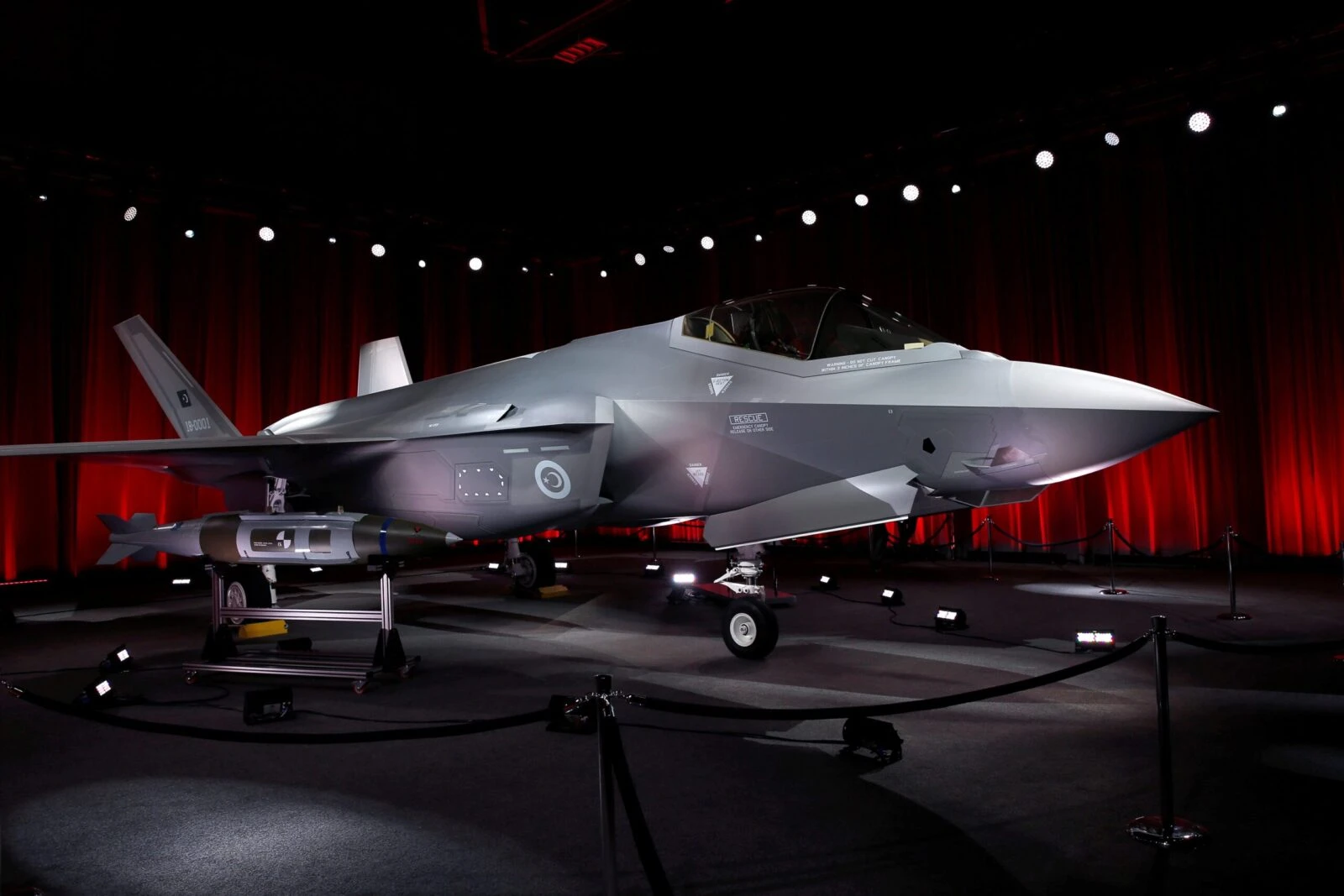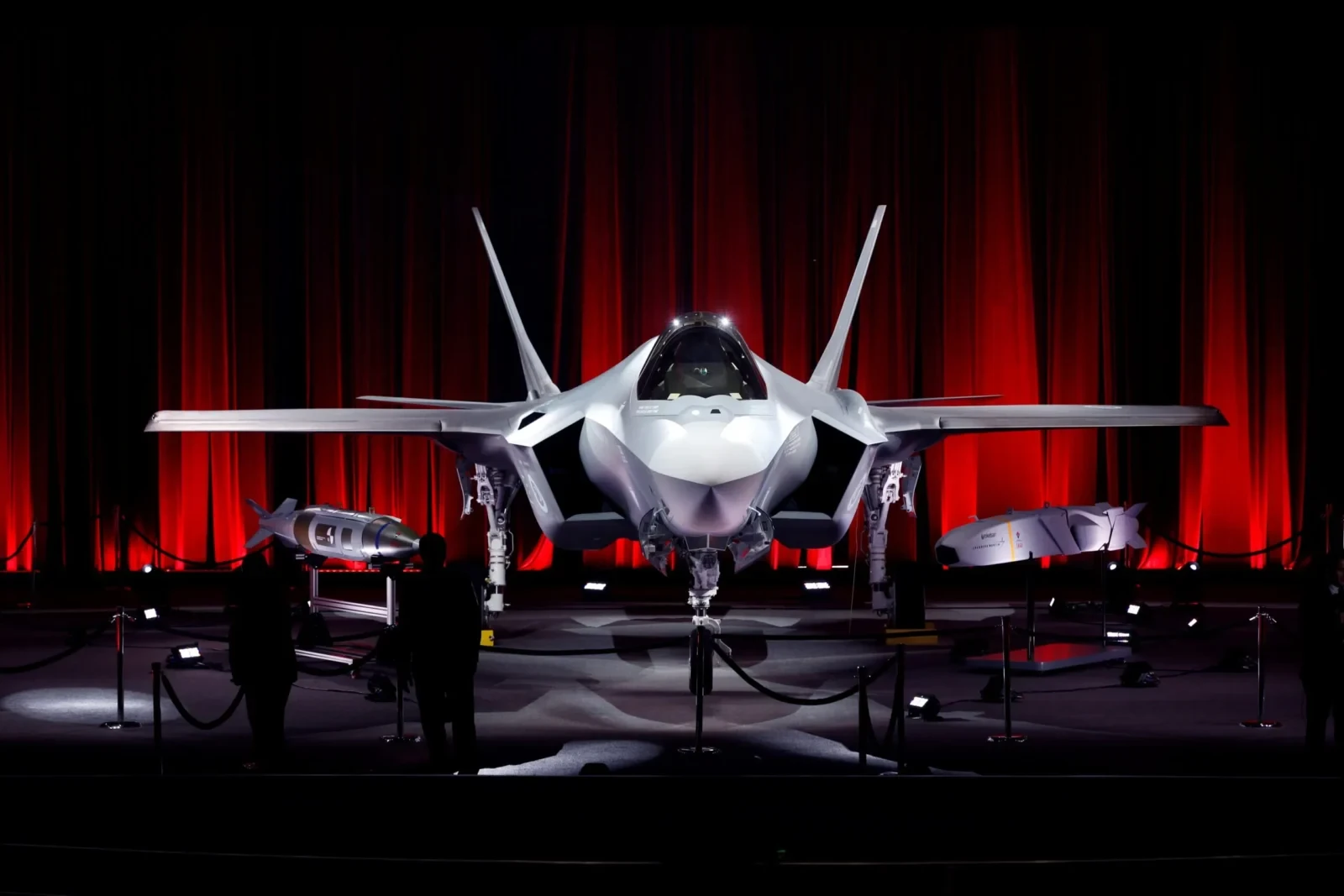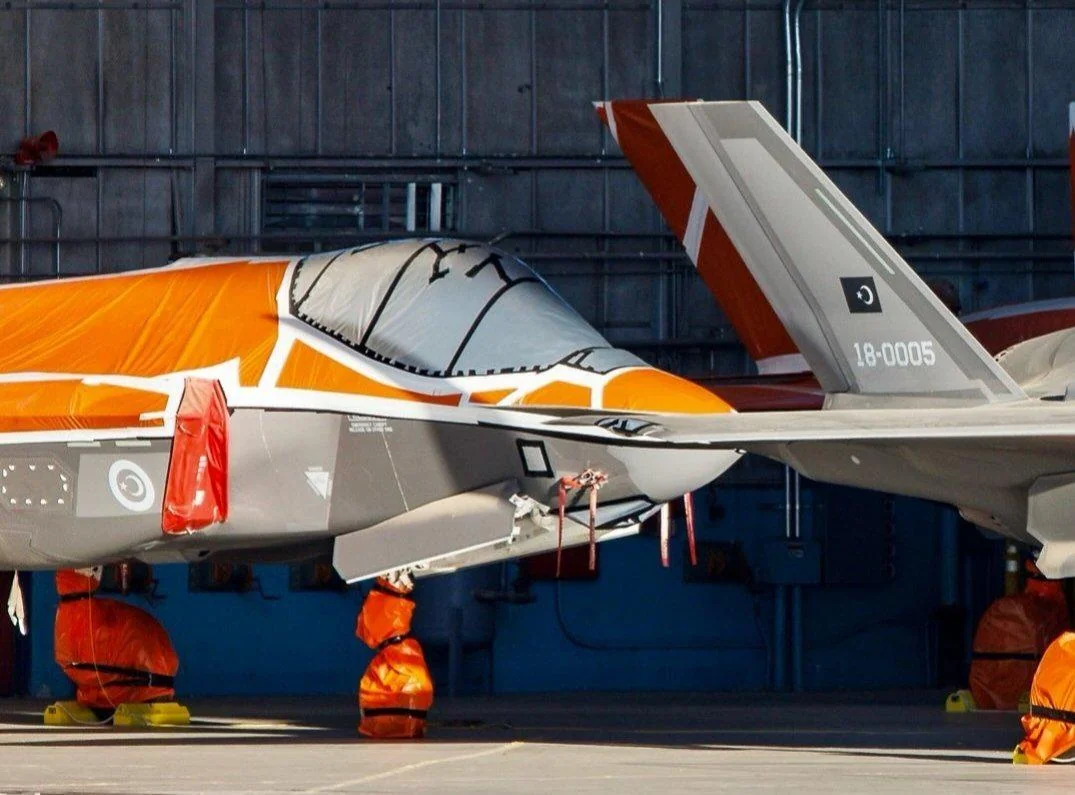Pentagon reportedly sees Türkiye’s F-35 reentry as no threat to ‘Aegean balance’
 A F-35 fighter jet preparing for take off in Leeuwarden, Netherlands on 4 October, 2021, accessed on 25 April, 2025. (Adobe Stock Photo)
A F-35 fighter jet preparing for take off in Leeuwarden, Netherlands on 4 October, 2021, accessed on 25 April, 2025. (Adobe Stock Photo)
U.S. Department of Defense aka the Pentagon no longer believes that Türkiye’s potential reentry into the F-35 fighter jet program would destabilize the military balance in the Aegean Sea, according to a report published by Greek daily Kathimerini.
Citing unnamed sources, the paper claims that Washington has recently moved away from prioritizing Greece’s technological edge and is instead emphasizing equal footing for both countries.
Previously, U.S. policy was said to favor giving Greece a qualitative edge — such as prioritizing F-35 procurement — to offset Türkiye’s numerical airpower advantage in the region. However, the report indicates a shift in strategy toward balanced treatment of both NATO allies.

F-35 sales to Türkiye no longer seen as disruptive
According to the article, current views within the Pentagon suggest that Türkiye’s return to the F-35 program — suspended after its acquisition of the Russian S-400 defense system — would not pose a strategic imbalance in the Aegean.
The same sources noted that hopes held by Israel‘s Prime Minister Benjamin Netanyahu to reduce American arms sales to Türkiye, including the F-35, were reportedly diminished following his recent discussions with U.S. President Donald Trump.
The report adds that Washington is increasingly aware of how Ankara’s regional stance is jointly perceived by both Greece and Israel, although U.S. policy remains shaped by presidential preferences.
The article also references the close personal relationship between President Recep Tayyip Erdogan and Donald Trump.

Greece to intensify talks with Lockheed Martin
The Greek Ministry of Defense is expected to increase its engagement with F-35 manufacturer Lockheed Martin in the coming months, Kathimerini reports.
The acquisition of the aircraft is projected to lead to major structural changes within the Greek Air Force.
Despite possible implications for Athens-Ankara relations, Greece is set to pursue bilateral priorities in its defense posture. The article stresses that Greece must maintain diplomatic momentum to underscore its status as a “privileged U.S. ally” in the region.

Türkiye seeks delivery of six paid F-35s
In a recent interview, Turkish Foreign Minister Hakan Fidan answered questions regarding to F-35 and CAATSA.
In a question referring to Türkiye’s exclusion from the F-35 program, Fidan recalled that Türkiye had already paid for six aircraft but never received them because of the sanctions.
“Regarding CAATSA and the current F-35 program, our acquired right for now is the delivery of six F-35 jets to Türkiye. These are our earned entitlements, and they must be returned to us through ongoing diplomatic efforts. We’ve paid for them; the planes are sitting there. You’ve been caught in a legal barrier; the delivery was halted. Some of your firms were involved in production; they’ve been removed.”
“Now regaining those rights and recovering what has already been given is a process we are undertaking,” he added.
Also the Turkish Minister of Defense Yasar Guler recently answered questions from reporters at the 23 April National Sovereignty and Children’s Day reception at the Turkish Parliament.
On the subject of Türkiye’s ongoing attempts to acquire new F-16 fighter jets and potentially reengage with the F-35 program, Guler said, “We believe our President’s visit to the United States is important. We will speak afterwards. The F-16 process is also continuing.”

Background: Sanctions and F-35 removal
In 2020, the U.S. imposed sanctions under CAATSA against Türkiye’s Presidency of Defense Industries and senior officials over Ankara’s acquisition of Russia’s S-400 missile defense system.
The move also led to Türkiye’s removal from the F-35 fighter jet program, where it had been a buyer and manufacturer.
Türkiye has labeled the sanctions “unjust,” arguing that its NATO membership and regional security role should shield it from such measures.
Ankara has consistently demanded reinstatement in the F-35 program or compensation for its financial contributions.
Türkiye has repeatedly asserted there is no conflict between the S-400 system and the F-35 jets and has proposed establishing a commission to investigate the issue.
Ankara maintains that it fulfilled its obligations for the F-35 program and that the suspension violated agreements. Türkiye also argues the defense deal would strengthen both Türkiye and NATO.
Last year, the U.S. State Department approved a $23 billion sale of F-16 aircraft and modernization kits to Türkiye, with talks on the details of the deal ongoing.



